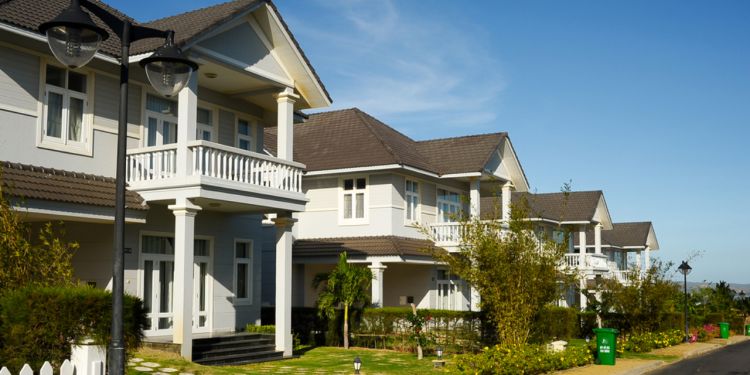
Booking accommodation in Vietnam is easy, as there is an abundance of options and a spectrum of listings to suit every budget. This article will review standard accommodation options, such as hotels and hostels, and dive deeper into rental costs per city on longer-term private accommodation like apartments and villas. We will also share several resources to enable informed decisions on finding accommodation in Vietnam that makes this new country feel like home.
Different styles of accommodation in Vietnam
Let's take a look at some of the most prevalent accommodation options in Vietnam. There is something to suit every budget, from cheap and cheerful hostels to the luxurious penthouses or villas. You can find accommodation to suit every budget country-wide and flexible properties that will extend a one-night booking into a week as you enjoy the city you are exploring.
In Vietnam, the most popular accommodation style would be a one-bedroom or studio apartment. It is then up to the tenant to decide the style they wish or if they want a high-rise or low-rise building. While searching for apartments, hostels, or a house in Vietnam, keep these style choices in mind to avoid disconnect in viewings:
- Elevators are not common unless you are specifically booking a luxurious hotel. Expect many stairs.
- Houses will have a ground-floor garage space with a kitchen on the same level.
- Apartments usually have small or non-existent kitchen space, unless you are living in a spacious two-bedroom floor plan.
- It is common to have a large outdoor space in the front of a house and no backyard.
- Floors are almost always tiled, and a small Buddhist shrine can be found near the entrance of most properties. If you are moving into a new home, you may find a previous shrine, or your landlord may come over to continue the tradition and bring good luck. Do not move or damage this.
Good to know:
Look up the property on Google Maps before booking! You might see a whole different side to reviews and photos.
Finding accommodation in Vietnam
Expats wanting to build a base in Vietnam have several options for temporary and long-term accommodation.
Good to know:
Whether you're arriving in Hanoi or Ho Chi Minh City, visit the Old Quarter or Bui Vien Street, respectively, and see how far you can make USD 10 stretch. This amount of money should be ample for drinks and street food at local establishments.
The most popular websites people use to find accommodation in Vietnam are:
Booking.com: Excellent selection of budget or high-end accommodations. Booking.com is great for reviews and photos but lacks accommodation outside of central tourist areas.
Agoda: Medium selection of main hotels. Mostly geared towards mid-budget travelers. Beware of customer service, as it is non-existent.
Hostelworld: Perfect for travelers with tight budgets, Hostelworld is also a social platform that helps connect travelers while in the same city.
Airbnb: This option is becoming harder in Ho Chi Minh City as tenants in buildings are beginning to push back against Airbnb. This is still a great option in Ha Noi or other cities nationwide. It is not recommended for budget plans, but it works in a pinch for medium to high-end budgeting.
Facebook: This social media is the pulse of Vietnam, and joining expat groups can also help connect with shared housing or with real estate agents.
High-end accommodation in Vietnam
If money is no object, the sky's the limit in Vietnam. The obvious choice of hotels in the major cities would be brands like The Hilton or The Sheraton. Expect the best kind of service from these reputable hotels:
The hospitality at this level of accommodation is different, and the staff may even have experience abroad or certificates specifically in hospitality and tourism.
Prices for rooms at this level start at US$90-215/night and come with the benefit of around-the-clock room service or a private tour desk. What's more, luxury hotels are always situated in the nicest parts of town. The Hanoi Sheraton, for example, sits right beside West Lake, the largest body of water in the city. The Hanoi Hilton, on the other hand, is located near the Opera House, as in Saigon, where the Hotel D'Art is also next to the opera house.
Should you choose to reside in a luxury apartment or villa during your stay in Vietnam, the options will dazzle you. For top-end prices, you are guaranteed a swimming pool, but if you are also searching for gym facilities, make sure to double-check with the property.
Accommodation prices in Vietnam
Below is an overview of housing prices in major cities and preferred expat destinations. Our list focuses on one-bedroom units in high-rise buildings with amenities and will specify, per city, what these amenities include.
Ho Chi Minh City
District 1
One-bedroom (no amenities): 9 million VND/month (USD 350.00)
District 1 rarely has buildings with amenities - you will most likely be in a building that has a maximum of six floors, and you should specify if you require an elevator.
Thao Dien
One-bedroom: 13 million VND/month (USD 505.69)
A mecca for expats, Thao Dien is a thriving area full of international food and schools. Apartments here will be more expensive, but you will be within the heart of social events ranging from wine tastings to open mic nights.
District 7
One-bedroom: 11 million VND/month (USD 432.00)
This area is referred to as the suburbs of Ho Chi Minh City. With wider sidewalks and streets, and parks, it is a preferred district for dog owners.
Hanoi
Old Quarter
One-bedroom(no amenities): 15 million VND/month (USD 583.49)
This area is crowded and a tourist hotspot. It is rare to find long-term rental opportunities as landlords will prefer the quick turnaround of visitors. However, the buildings do exist and will keep you within a local community, providing an intimate look at life in Ha Noi.
Tay Ho
One-bedroom - 10 million VND/month (USD 389.00)
Similar to Thao Dien in Ho Chi Minh City, the amenities in the buildings include an elevator and a gym. Pools are scarce due to the city's various seasons, and you'll want to ensure that the unit has modern heating to remain comfortable during winter.
Da Nang
One-bedroom: 9 million VND/month (USD 350.00)
Da Nang has three prime areas for expats to live in. They are An Thuong, Hai Chau 1, Son Tra. Each one has different perks, and we've highlighted a more detailed account in our article, Accommodation in Da Nang. Amenities will include a balcony, an elevator and a gym.
Hai Phong
One-bedroom: 9 million VND/month (USD 350.00)
Apartments with international amenities are still a relatively new addition to the small northern logistics hub. You'll find a few buildings that include access to a gym and elevator, but the majority will be mid-level apartments, which include a balcony and a cleaner twice a week.
Good to know:
As of April 2024, Hanoi surpassed Ho Chi Minh City as the most expensive city to live in Vietnam. Ho Chi Minh City came second with Da Nang in third. Other mentions include provinces Quang Ninh, Hai Phong, and Binh Duong.
Compared to other Southeast Asia countries, Vietnam is at the cheaper end of the spectrum in general. However, if you're hoping to adhere to that shoestring budget, smaller towns are your best bet. The difficulty you'll encounter here is that the international letting outlets have a limited supply of accommodation in the lesser-known places.
Renting accommodation in Vietnam
If you plan to stay in private accommodation for longer durations, you will almost certainly be required to pay a deposit. Most landlords will ask for a one-month deposit in addition to the first month's rent in advance. However, some may ask for a two-month deposit. Should you decide to arrange something outside of the trusted networks, like Airbnb, you would be assuming additional risk.
You will be expected to sign a rental contract, and it is the law to have it in both Vietnamese and the tenant's native language. This will serve a dual purpose: to protect yourself (the tenant) and for the landlord to update the police records of the tenancy. According to the country's law, the language of the contract is not required to be Vietnamese, and the contract can be bilingual or multilingual, but when resolving disputes in a jurisdiction, the content must be translated into Vietnamese.
Unfortunately, if any discrepancy occurs between you and your landlord, taking legal action will be a costly and lengthy process that would require a translator to help navigate the proceedings. For this reason, sticking to a reputable realtor is advisable.
Choosing accommodation in Vietnam considering the weather
Vietnam is a hot country. However, if you prefer chillier weather, consider the north between November and March. Temperatures can drop to less than 10 °C in Hanoi and even lower in the further mountain ranges of Sapa or the province of Ha Giang.
The south is hot for the majority of the year, minus the rainy season, which makes the metropolis of Ho Chi Minh City challenging for some to live in. Temperatures can soar to the high 30°C, and combined with the humidity and city congestion, it can border on unbearable.
Central Vietnam also goes back and forth between dry and rainy and is an area that experiences annual flooding. Nha Trang, Hoi An, Da Nang, and Hue are some of the most popular cities, but they come with added rain throughout the year. Heading further inland, the mountainous city of Dalat offers tranquility, excellent cafes, and budget-friendly accommodation.
We do our best to provide accurate and up to date information. However, if you have noticed any inaccuracies in this article, please let us know in the comments section below.
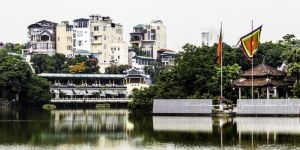
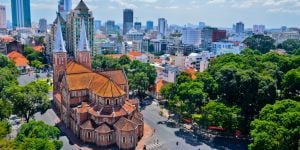

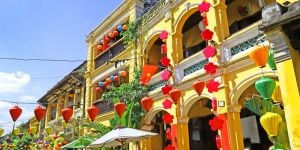
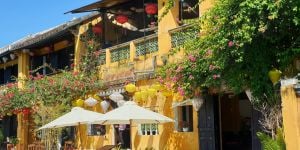
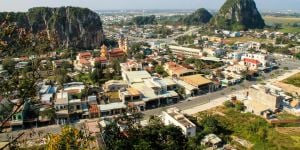

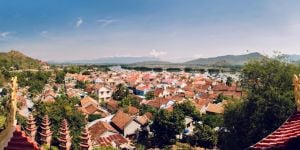




Comments